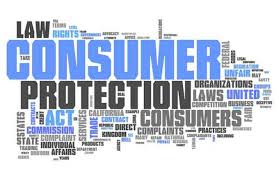Consumer protection has been written into the law to guard people against unfair trading and untrustworthy businesses/companies.
The Consumer Credit Act 2006
The Consumer Credit Act gives customers protection when entering into a loan agreement.
The details of the loan including the type of credit, duration of the agreement, APR and the rate of interest charges are all included in a Pre-Contract Information document.
The Pre-Contract Information Document is signed by both the customer and the credit provider and the customer keeps a copy of this document.
The Consumer Credit Act also allows the customer the right to a cooling-off period - this means that the customer has the right to cancel/withdraw from the loan agreement within 14 days from the date they received the funds. They then have 30 days to repay the funds.
Consumer Protection from Unfair Trading Regulations 2008
This Act protects consumers from unfair or misleading trading practices.
This means that traders are not allowed to claim something about a product that is not true.
This Act has meant that aggressive selling practices including cold calling, pressure selling and aggressive doorstep calling are banned.
Consumer Rights Act 2015
This Act ensures that:
the product a person is buying is fit for purpose and as described. This ensures that a consumer has goods which work and function as described and are not fake goods.
consumers have a legal right to demand a refund within 30 days from the date the product is brought if the goods are unfit for purpose, not as described or do not work.
if the goods were to stop working outside the 30 day refund period then the customer has the right to give the retailer one opportunity to repair or replace the goods.
a retailer is banned from misleading consumers, even through digital content, as the retailer is not allowed to claim something about a product that is not true or to advertise goods which do not exist.
the consumer is protected as a retailer is responsible for goods purchased until they are delivered into a person’s possession or someone who may have been appointed to receive the goods such as a neighbour.
Check out the CCEA GCSE Learning for Life and Work Second Edition Textbook to find out more or check out: My Revision Notes: CCEA GCSE Learning for Life and Work: Second Edition
As an Amazon Associate I earn from qualifying purchases.


Comments